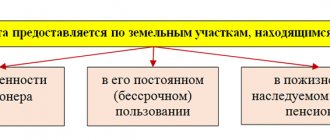Who is exempt from paying VAT?
Only a company or individual entrepreneur that has worked since opening for at least 3 months and during this time earned less than 2 million rubles (Article 145 of the Tax Code of the Russian Federation) can receive tax exemption. The calculation takes into account revenue for three consecutive calendar months: say, January, February, March. Only if an enterprise can confirm with the help of documents revenue volumes of less than 2 million rubles, can it qualify for “life without VAT”.
Newly registered companies and individual entrepreneurs can take into account revenue starting from the month of registration. And even if they do not operate, they can still be exempt from VAT (letter of the Ministry of Finance dated August 23, 2019 No. 03-07-14/64961).
To maintain the right to work without VAT, you cannot earn more than the specified limit for three consecutive months in the course of all future activities. The company will have to pay VAT again from the month when three-month revenue exceeds the limit of 2 million rubles.
There are three more conditions for applying the benefit:
- do not import;
- not to act as a tax agent;
- if you trade excisable goods, keep separate records and pay VAT on this group of goods.
Tax benefits for income tax
The Tax Code of the Russian Federation does not have a clear list of benefits for profit taxation, but some norms provide relaxations and various preferences for taxpayers. In particular, preferential tax conditions include:
- application of reduced tax rates;
- zero tax rate;
- investment deduction;
- depreciation bonuses.
Income tax benefits in the form of reduced tax rates are provided for in Art. 284 Tax Code of the Russian Federation. For example, the regional part of the income tax is reduced for participants in special economic zones. But the relief applies only to those incomes that the organization received from its activities within such a zone. The size of the tax burden at the level of constituent entities of the Russian Federation can also be reduced for participants in regional investment projects and special investment contracts. At the same time, the federal budget tax is calculated at a zero rate, but not more than 10 years from the year of receipt of the first income within the framework of the project being implemented (Article 284.3 of the Tax Code of the Russian Federation).
Tax benefits for income tax in the form of a zero tax rate are available with some reservations for the following categories of taxpayers:
- companies in the field of education or medical organizations - the legal entity must have the appropriate license, the amount of income from this activity must be at least 90% of total revenue, the staff must continuously have at least 15 people on staff during the tax period, and there must not be any operations with bills and derivative financial instruments (Article 284.1 of the Tax Code of the Russian Federation);
- participants of a cluster uniting tourist and recreational special economic zones that keep separate records of their income - the tax rate for them is 0% in the part that is subject to credit to the federal budget, and in some cases a rate of 2% may apply (clause 1.2 of Art. 284 Tax Code of the Russian Federation)
- some producers of agricultural products and fishery enterprises, provided that the share of income in the preferential area of activity is at least 70% of total revenues (clause 1.3 of Article 284 of the Tax Code of the Russian Federation);
- residents of TASED (territories of rapid socio-economic development), the free port of Vladivostok, the Arctic zone of the Russian Federation, provided that these companies are not credit or insurance structures, residents of special economic zones, participants in regional investment projects, do not have separate divisions outside of TASED, are not included to the number of non-profit organizations (Article 284.4 of the Tax Code of the Russian Federation);
- enterprises specializing in social services to the population (Article 284.5 of the Tax Code of the Russian Federation);
- companies that are regional operators for the management of municipal solid waste, if a constituent entity of the Russian Federation has adopted a law on a zero rate in the regional part of the tax (Law No. 211 of July 26, 2019);
- municipal and regional museums, libraries, theaters (clause 1.13 of article 284 of the Tax Code of the Russian Federation).
Art. 286.1 of the Tax Code of the Russian Federation approved the right of taxpayers to income tax benefits in the form of an investment deduction. The essence of this preference is that an enterprise, due to its expenses for the acquisition, construction, modernization of fixed assets and some other costs, can reduce tax liabilities on profits (namely a tax, not a tax base). The deduction is available to organizations only if this benefit is approved at the regional level.
Another type of tax breaks is the use of the depreciation bonus mechanism in accordance with clause 9 of Art. 258 Tax Code of the Russian Federation. Thanks to it, the taxpayer can immediately offset up to 30% of his costs for capital investments in the expenditure base. The maximum amount of depreciation premium depends on the belonging of the fixed asset item to a specific depreciation group.
As a rule, to receive a benefit, the taxpayer declares the right to it in advance - before the start of the new tax period, a corresponding application with documents confirming this right is submitted to the Federal Tax Service.
How to apply for VAT exemption
You can be exempt from VAT from the beginning of any month. To do this, submit an application and a package of documents before the 20th day of the month in which you are ready to work without VAT (which means the upcoming three months will bring in revenue of less than 2 million rubles).
For tax purposes, collect documents:
- notification in the form approved by order of the Ministry of Finance dated December 26, 2019 No. 286n;
- invoice journal and its copy;
- an extract from the balance sheet for a company or an extract from the KUDiR for an individual entrepreneur for three months;
- an extract from the sales ledger for three months.
Please enter in your application:
- information about the individual entrepreneur or company;
- details of your tax office, to which you are sending your application;
- the date from which VAT exemption is planned;
- revenue volume for the previous three months;
- list of supporting documents.
The text of the notification fits on one and a half pages, while half the page is occupied by the header and title of the document. Filling it out is not difficult; it can be done by hand or using a computer. The application is signed by the director of the company and the accountant or the individual entrepreneur himself, certified by his signature and submitted in two copies to the tax office in person or by mail. There is no need to wait for a response from the tax office - just work without VAT from the beginning of the month indicated in the application and try not to “go overboard” with the proceeds.
Here is a sample application:
What documents need to be provided
To obtain an exemption, taxpayers must submit: a notice of exercise of the exemption;
extract from the balance sheet (provided by organizations); extract from the sales book; an extract from the book of income and expenses and business transactions (submitted by individual entrepreneurs). Organizations and individual entrepreneurs who used the simplified tax system present a book of income and expenses according to the simplified tax system, and individual entrepreneurs who used the Unified Agricultural Tax, a book of income and expenses of individual entrepreneurs. The Tax Code does not specify what an extract from the balance sheet is. Some tax preparers require a Statement of Income, but this statement does not show revenue for the last three months. Therefore, it is recommended to submit an extract in free form, where you simply indicate the amount of revenue according to accounting data from such and such a period. A similar extract can be made from the books of income and expenses, since these books provide for accounting on a cash basis and the “income” columns indicate, among other things, advance payments received.
To obtain the right to be exempt from VAT taxpayer obligations, documents and notification must be submitted no later than the 20th day of the month from which the exemption will apply. Despite the deadline established by the code for filing documents, there have been disputes for many years about whether a taxpayer who missed the deadline for filing documents has the right to receive an exemption. The Plenum of the Supreme Arbitration Court of the Russian Federation put an end to the disputes in Resolution No. 33 of May 30, 2014 “On some issues that arise in arbitration courts when considering cases related to the collection of value added tax.” In this Resolution, the judges indicated that “... persons who actually used the exemption from fulfilling taxpayer obligations related to the calculation and payment of tax in the relevant tax periods cannot be denied the right to such exemption solely on the basis of failure to submit notification and documents within the prescribed period " The Ministry of Finance also had to agree with this[4]. Thus, organizations and individual entrepreneurs were given the opportunity to submit notifications and documents “retrospectively”.
How to extend your exemption
The notice of release “works” for twelve months, the main thing is not to exceed the revenue limit. To extend the exemption, submit a second application and the same package of documents to the tax office after a year. Do this before the 20th day of the month in which you need to renew your right to the benefit. If you do not submit supporting documents, your account may be blocked, fines and penalties will be imposed, and VAT will be charged for the year.
The Federal Tax Service will check your reporting documents to see if there was a case of exceeding the limit for one of the three-month periods during the past year and two months before it. You will not receive an answer in the same way as with the first application, but if there was a violation, additional VAT will be charged to you and you will definitely find out about it.
If VAT exemption is no longer needed
Sometimes a company wants to return to working with VAT, for example, for the sake of working with a profitable partner. But this can be done only a year after submitting the application (clause 4 of Article 145 of the Tax Code of the Russian Federation), when the benefit is canceled by itself. You can start issuing VAT invoices to your counterparties, but it cannot be deducted until the end of the grace period - this will be considered a violation.
Early exemption can only be lost due to exceeding the revenue limit. Then this happens from the month when the limit is violated (clause 5 of Article 145 of the Tax Code of the Russian Federation, Letter of the Ministry of Finance dated 05/06/2010 No. 03-07-14/32). So one way to get back to working with VAT is to dramatically increase revenues.
Corporate income tax – tax benefits 2022
From 2022, some businesses have more opportunities to reduce their income taxes.
Thus, a reduced tax rate of 3% has been introduced for IT companies and firms specializing in the production of electronic products (clause 1.15 of Article 284 of the Tax Code of the Russian Federation). At the same time, there is no need to notify the fiscal authority about the start of application of new income tax rates (the Ministry of Finance expressed this opinion in Letter No. 03-03-06/1/101948 dated November 23, 2020). Starting from 2022, IT companies calculate corporate income tax according to new rules - they can apply benefits in the form of a reduced rate if a number of conditions are met:
- the share of income from the main line of business in the overall structure of income receipts must be at least 90%;
- the average number of employees employed in the main type of activity is at least 7 people;
- the company must have state accreditation.
From 2022, taxpayers have the right to apply an investment deduction to R&D expenses. The tax transferred to the federal budget can be reduced by 10% of the amount of these expenses, and to the regional budget by 90% (Law No. 374-FZ of November 23, 2020, clause 6, clause 2, article 286.1 of the Tax Code of the Russian Federation).
Relaxations in determining the tax base from 2022 have affected producers of printed products (books and media).
According to the new rules, they can be credited in profit expenses not 10%, but 30% of the cost of defects and products that have lost their marketable appearance (the norm was introduced by Law No. 323-FZ of October 15, 2020). You can find more complete information on the topic in ConsultantPlus. Free trial access to the system for 2 days.





